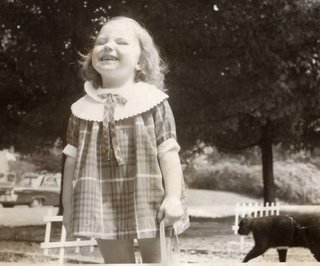Not sure where this meme originated, but it looks like fun. I found it via a link off the Daily Meme site (a meme is a list or quiz or other odd little writing prompt).
The object is to look over the list of 100 books, bold the ones you've read, italicize ones you've started but not finished, and leave the rest as is. Then add three books you've read that aren't already on the list to the bottom. Here's mine!
1.
The Lord of the Rings, JRR Tolkien2.
Pride and Prejudice, Jane Austen3. His Dark Materials, Philip Pullman
4.
The Hitchhikers Guide to the Galaxy, Douglas Adams5.
Harry Potter and the Goblet of Fire, JK Rowling6.
To Kill a Mockingbird, Harper Lee7.
Winnie the Pooh, AA Milne8.
1984, George Orwell9.
The Lion, the Witch and the Wardrobe, CS Lewis10.
Jane Eyre, Charlotte Bronte11. Catch-22, Joseph Heller
12.
Wuthering Heights, Emily Bronte13. Birdsong, Sebastian Faulks
14. Rebecca, Daphne du Maurier
15.
The Catcher in the Rye, JD Salinger16.
The Wind in the Willows, Kenneth Grahame17.
Great Expectations, Charles Dickens18.
Little Women, Louisa May Alcott19. Captain Corellis Mandolin, Louis de Bernieres
20. War and Peace, Leo Tolstoy
21. Gone with the Wind, Margaret Mitchell
22.
Harry Potter And The Sorcerers Stone, JK Rowling23.
Harry Potter And The Chamber Of Secrets, JK Rowling24.
Harry Potter And The Prisoner Of Azkaban, JK Rowling25.
The Hobbit, JRR Tolkien26. Tess Of The DUrbervilles, Thomas Hardy
27.
Middlemarch, George Eliot28.
A Prayer For Owen Meany, John Irving29. The Grapes Of Wrath, John Steinbeck
30.
Alice's Adventures In Wonderland, Lewis Carroll31. The Story Of Tracy Beaker, Jacqueline Wilson
32.
One Hundred Years Of Solitude, Gabriel Garcia Marquez33. The Pillars Of The Earth, Ken Follett
34. David Copperfield, Charles Dickens
35. Charlie And The Chocolate Factory, Roald Dahl
36.
Treasure Island, Robert Louis Stevenson37. A Town Like Alice, Nevil Shute
38.
Persuasion, Jane Austen39. Dune, Frank Herbert
40.
Emma, Jane Austen41.
Anne Of Green Gables, LM Montgomery42. Watership Down, Richard Adams
43.
The Great Gatsby, F Scott Fitzgerald44.
The Count Of Monte Cristo, Alexandre Dumas45.
Brideshead Revisited, Evelyn Waugh46.
Animal Farm, George Orwell47.
A Christmas Carol, Charles Dickens48.
Far From The Madding Crowd, Thomas Hardy49. Goodnight Mister Tom, Michelle Magorian
50. The Shell Seekers, Rosamunde Pilcher
51.
The Secret Garden, Frances Hodgson Burnett52.
Of Mice And Men, John Steinbeck53. The Stand, Stephen King
54.
Anna Karenina, Leo Tolstoy55. A Suitable Boy, Vikram Seth
56. The BFG, Roald Dahl
57. Swallows And Amazons, Arthur Ransome
58.
Black Beauty, Anna Sewell59. Artemis Fowl, Eoin Colfer
60. Crime And Punishment, Fyodor Dostoyevsky
61. Noughts And Crosses, Malorie Blackman
62. Memoirs Of A Geisha, Arthur Golden
63.
A Tale Of Two Cities, Charles Dickens64. The Thorn Birds, Colleen McCollough
65. Mort, Terry Pratchett
66. The Magic Faraway Tree, Enid Blyton
67. The Magus, John Fowles
68. Good Omens, Terry Pratchett and Neil Gaiman
69. Guards! Guards!, Terry Pratchett
70.
Lord Of The Flies, William Golding71. Perfume, Patrick Susskind
72. The Ragged Trousered Philanthropists, Robert Tressell
73. Night Watch, Terry Pratchett
74. Matilda, Roald Dahl
75. Bridget Jones' Diary, Helen Fielding
76. The Secret History, Donna Tartt
77. The Woman In White, Wilkie Collins
78. Ulysses, James Joyce
79. Bleak House, Charles Dickens
80. Double Act, Jacqueline Wilson
81. The Twits, Roald Dahl
82. I Capture The Castle, Dodie Smith
83. Holes, Louis Sachar
84. Gormenghast, Mervyn Peake
85. The God Of Small Things, Arundhati Roy
86. Vicky Angel, Jacqueline Wilson
87.
Brave New World, Aldous Huxley88.
Cold Comfort Farm, Stella Gibbons89. Magician, Raymond E Feist
90. On The Road, Jack Kerouac
91. The Godfather, Mario Puzo
92.
The Clan Of The Cave Bear, Jean M Auel93. The Colour Of Magic, Terry Pratchett
94. The Alchemist, Paulo Coelho
95. Katherine, Anya Seton
96. Kane And Abel, Jeffrey Archer
97. Love In The Time Of Cholera, Gabriel Garcia Marquez
98. Girls In Love, Jacqueline Wilson
99.
The Princess Diaries, Meg Cabot100. Midnights Children, Salman Rushdie
101.
Ender's Game, Orson Scott Card
102.
The Things They Carried, Tim O'Brien
103.
A Wrinkle in Time, Madeleine L'Engle
Hmmm...interesting list. Nice of them to go so heavy on Austen and Rowling, which makes me look better. :-) I confess that three of these were read
to me, by my husband: Hitchhiker's Guide, Lord of the Flies, and Animal Farm. I put Animal Farm in italics because I think I slept through most of it (sorry, honey!). My DH has read just about everything of Orwell's and I gave Orwell a mighty try when we were first married, but have really only gotten through 1984 and Keep the Aspidistra Flying (which isn't on this list)!
I was happy to be able to bold Alice's Adventures in Wonderland. Once upon a time, when I was in high school, I would have had to put it in italics because I'd started but not finished it. I finally read it all the way through while in my 20s. I should have read all of Middlemarch in my college Vic. Lit. class but didn't (sorry, Nancy!). It's one of those books I keep meaning to get back to.
I clearly need to read more Dickens. I honestly don't know if I've read all of Great Expectations because when I did read it, I was in 8th grade. I think we may have read a shortened version. But I love A Christmas Carol and I really enjoyed A Tale of Two Cities when I finally read it last year. I have a feeling I am overdue for a Dickens year. Any suggestions as to which of his books to read next gratefully accepted!
